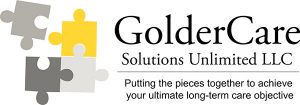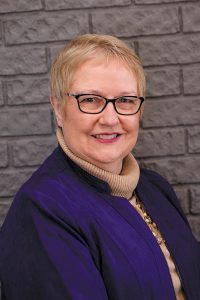August 1, 2023
Your Advocacy Connection

We Solve Long Term Care Problems
Does Your Trust Work with Medicaid?
 By Gail Glockhoff-Long
By Gail Glockhoff-Long
GolderCare Solutions
Benefits Advocate
People often tell us they think their assets are protected from the state if they need Medicaid because their attorney set up a trust.
Well…that depends. It depends on the type of trust. It depends on how the trust was funded. It depends on whether the trust was properly maintained after it was originally put in place. Ideally, your assets are protected. Unfortunately, the real world often falls short of ideal.
What is a trust? Aren’t they all the same?
In general, a trust is a legal document that gives direction, power and authority to someone (Trustee) to manage assets of the person that created the trust (Trustor). Once the document is created and properly signed, assets have to be retitled into the name of the trust. A new bank account in the name of the trust may be opened and funded with money. The house or farm may be deeded from the Trustor’s personal name to the Trust. There may be special provisions in the trust as to how funds can or cannot be used and what happens to the funds at the time of the Trustor’s death. There are, however, many different types of trusts that serve different purposes. Let’s look at a couple of examples.
Frank and his wife Joan set up an Income Only Trust (IOT) with their attorney with the purpose of protecting their home from the cost of nursing care. Their daughter Mary was named as the Trustee. With an IOT, someone other than Frank and Joan serves as the Trustee and controls all the assets. The income produced by any assets in the IOT is paid to Frank and Joan. Frank and Joan have no control over the asset and that is what protects the asset from Medicaid.
Six years later they downsized to a smaller house. Mary sold the old house out of the trust and used the IOT house proceeds money to buy the new house. Unfortunately, Mary did not consult with anyone that understood IOT trusts and Medicaid. She had the new house titled in the names of Frank and Joan as joint tenants rather than in the trust. As a result, the house has “fallen out of the trust,” as we say.
When Joan and Frank both went into care the following year, their house was not protected from the Medicaid lien because, even though Mary used funds from the IOT to purchase the new house, she did not correctly title the new house back into the IOT. In this case, the IOT was the correct trust to protect the home asset. It was properly established and funded, but Mary did not correctly replace the old house asset with the new house asset. Mary’s failure to consult an expert cost her parents the asset they had wanted to protected.
Clara and George own a home in Illinois and property in Arizona. Their attorney suggested an estate plan that included a Revocable Living Trust (RLT) to avoid probate in both Illinois and Arizona when they die. Both properties and their investment accounts were retitled into the RLT. They left their main checking and savings account outside the trust in their own name.
Years later George’s health declined and he needed nursing care. Clara was concerned about the $10,000 a month cost of George’s care. Clara wanted to apply for Medicaid to pay for George. She had only $50,000 in their bank accounts. She remembered that the attorney had titled both properties and their investment account into the RLT so she thought they were safe and would not count as an asset when George applied for Medicaid.
The RLT was the correct trust to protect the 2 properties from probate – it was the wrong trust to protect assets when applying for Medicaid. It offered no protection for the assets, even those inside the trust.
Trusts are only tools. You have to have the right tool for the job. You have to know what your tool was designed to do. If I want to make a table, I go to the tool maker to buy the tools, but I then go to a carpenter to show me how to use the tool for my specific project.
There are many other types of trusts including Special Needs Trusts, but they are so specialized by situation and state, we will leave them for another day.
Trusts can be very confusing and difficult to understand. A lot of time and money spent establishing a trust is wasted if the trust is mishandled. The important message learned by our families is:
- Know the purpose of your trust
- Know how to fund and use the trust
- Know the importance of maintaining the trust
- Know when to talk to a professional for help
- We aren’t lawyers at GolderCare. But we are experts in how trusts intersect with Medicaid eligibility. Call us today with your questions.
GolderCare Solutions is an independent advocacy group for seniors, the disabled and those that care for them. GolderCare has offices in Moline and Bettendorf. You can reach GolderCare at (309) 764-2273 or learn more at www.goldercare.com.
Filed Under: Finance, Health & Wellness, Retirement
Trackback URL: https://www.50pluslife.com/2023/08/01/your-advocacy-connection-59/trackback/


